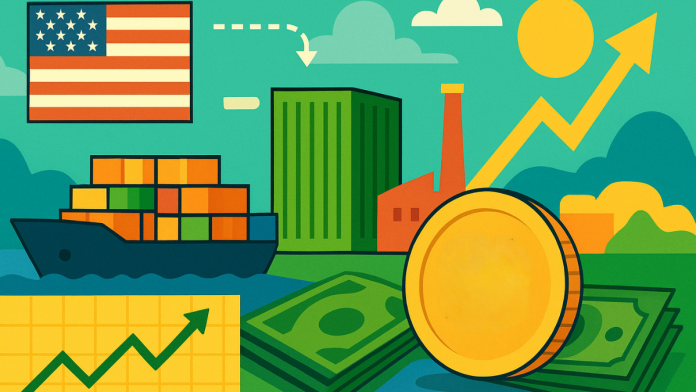Brazil has announced a major plan to support its exporters after facing steep tariffs from the United States. The $5.5 billion program is aimed at helping businesses hit by US tariffs that go as high as 50%. The move is designed to protect the Brazilian economy while encouraging local business and trade.
Brazilian President Luiz Inácio Lula da Silva unveiled the plan, emphasizing that crises can be opportunities to create new solutions. “A crisis is for us to create new things,” he said, signaling a proactive approach to economic challenges caused by foreign tariffs.
$5.5 Billion in Support for Exporters
The plan includes $5.5 billion in credit for companies that have been struggling due to high tariffs imposed by US President Donald Trump. This support aims to give businesses the breathing room they need to continue operations and remain competitive in global markets.
US warns India of higher secondary tariffs if Trump-Putin talks fail in Alaska
In addition to credit, Brazil will delay tax charges for companies affected by the tariffs. This measure is expected to ease financial pressure on exporters and allow them to redirect resources toward keeping jobs and production stable.
The government also encourages to buy products made in their own country. This initiative aims to boost local sales for items that would otherwise have been exported to the United States. By stimulating domestic demand, the government hopes to soften the impact of Trump’s tariffs.
Responding to Trump’s Tariffs
The high US tariffs were announced as part of broader trade actions but have hit Brazil particularly hard. Some tariffs reach up to 50%, making Brazilian products significantly more expensive in the US market.
🇨🇭 Swiss outrage erupts as Trump slaps record 39% tariffs, shaking F-35 jet deal
The high US tariffs were announced as part of broader trade actions but have hit Brazil particularly hard. The country was hit by a steep 50% tariff from the U.S., which included a fresh 40% duty added to the standard 10% that was already in place. These tariffs targeted major Brazilian exports such as coffee and meat, making these products significantly more expensive in the U.S. market.
President Trump cited issues related to human rights and the political situation of former Brazilian leader Jair Bolsonaro as reasons for imposing the tariffs. Brazil’s government has rejected these claims, saying its judiciary is independent and the country’s democratic system should not be questioned.
President Lula also criticized the reasoning behind the tariffs. He suggested that the US often portrays its rivals as threats when imposing trade restrictions while ignoring its own domestic problems. Brazil’s Finance Minister Fernando Haddad added that the country is being “sanctioned for being more democratic than its aggressor.”
US considers sanctions on Rosneft and Lukoil if ceasefire talks with Putin fail
Commitment to Negotiation
Despite the tensions, Brazil is keeping doors open for dialogue with the United States. President Luiz Inácio Lula da Silva has not imposed new tariffs on U.S. goods and has made it clear that the country does not seek conflict. He also emphasized that the country’s judiciary is independent, rejecting the U.S. claims used to justify the tariffs.
Finance Minister Fernando Haddad added that Brazil is being “sanctioned for being more democratic than its aggressor.”
“We like to negotiate. We don’t want conflict. The only thing we need to demand is that our sovereignty is untouchable,” President Lula said.
The government’s focus remains on protecting Brazilian businesses and ensuring the country can withstand external economic pressures without resorting to retaliatory measures. By providing financial support and promoting domestic consumption, Brazil is taking a measured approach to a challenging international situation.
